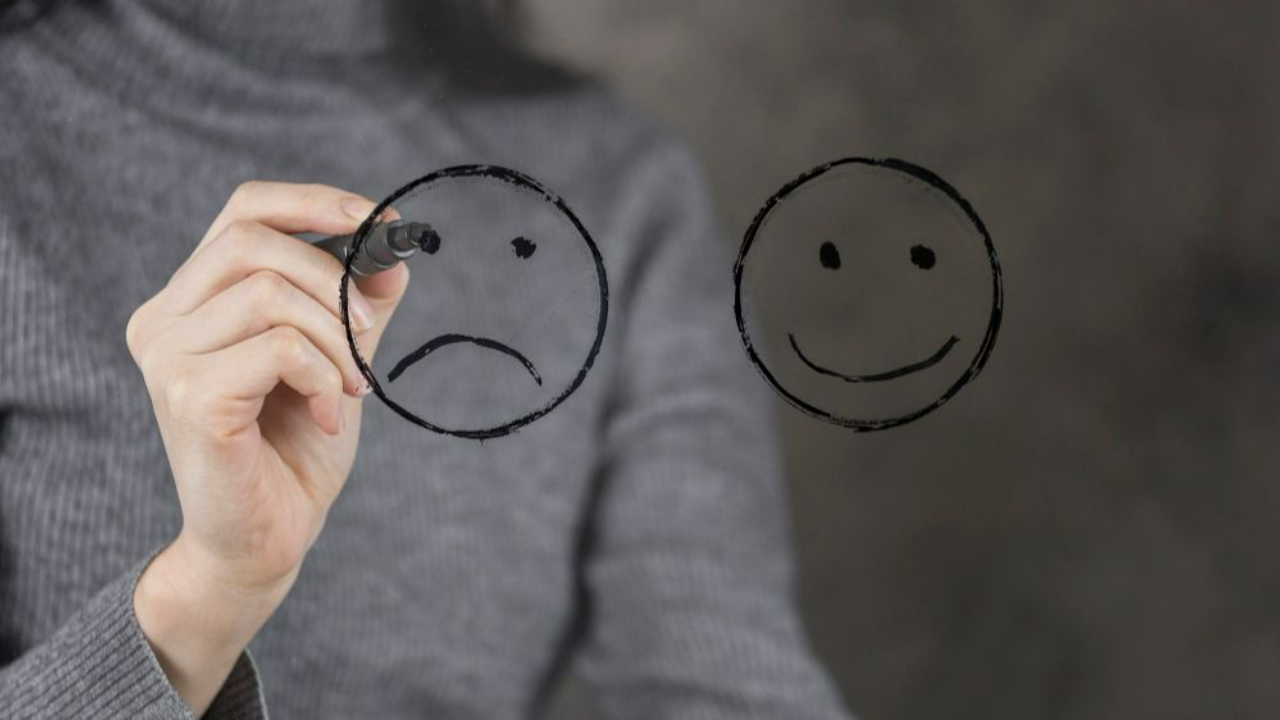
What Is Emotional Regulation? The Foundation of Healthy Relationships
Emotional regulation is the ability to notice, understand, attune to, and manage feelings in healthy and adapative ways. Regulation doesn’t mean suppressing emotions or pretending to be calm when you’re not. It does mean learning how to respond to the waves of your emotional life without letting them overwhelm you—or cause you to react in ways that negatively affect yourself and others.
When you can regulate your emotions, you are able to respond rather than react. This skill is foundational for healthy and effective relationships, greater self-trust, and more confidence.
Oftentimes we don't see emotional regulation modeled in our family, school, or workplace, and it takes detrimental experiences or sabotaging relationships to make us realize there are probably emotionally healthier ways to respond to triggering life situations. Many people don't realize the importance of this until they are in their 30s or 40s. The good news is our brains are neuroplastic and it's never too late to learn emotional regulation.
Why Does Emotional Regulation Matter?
Emotional regulation matters because our emotional reactions shape our choices, behaviors, and interactions - even more than we may realize. When left unchecked, automatic impulses in reaction to strong emotions like anger, anxiety, or shame can sabotage relationships, create conflict, and harm others. When we are emotionally regulated, on the other hand, we are able to:
-
Stay grounded in stressful moments.
-
Build safety and depth of connection in relationships.
-
Communicate more clearly, effectively, and kindly.
-
Reduce the risk of saying or doing things we regret.
-
Build resilience when life doesn’t go our way.
Healthy regulation doesn’t remove, ignore, or avoid emotional pain, but it allows us to process and integrate emotions in ways that support growth and connection.
How Does Emotional Regulation Impact Relationships and Trust?
Trust in relationships develops when both people feel safe to express themselves and trust they will be responded to with care. If one partner explodes in anger or shuts down and pulls away at any sign of stress, the other partner is left feeling insecure, unattended to, and often, triggered.
Research shows that relationships where one partner's needs or demands are responded to with these kinds of withdrawal responses lead to less satisfaction in the relationship and more likelihood of divorce.
Strong emotional regulation is the foundation for the following foundational elements of relationships:
-
Reliability: Your partner can count on you to be present consistently and handle conflict constructively.
-
Repair: After disagreements, you can calm yourself and re-initiate connection.
-
Mutual respect: Instead of lashing out, you can communicate needs in a way that strengthens bonds.
Couples who regulate emotions effectively are more likely to feel emotionally safe, resolve conflicts faster, and experience deeper intimacy that lasts for a longer period of time.
Why Do Some People Struggle to Regulate Their Emotions?
Struggles with emotional regulation often stem from early life experiences, attachment wounds, or unprocessed trauma. These difficulties deeply imprint our nervous systems until we learn to make them conscious and apply tools to regulate ourselves. Other examples of causes of emotional dysregulation:
-
Family environment: Growing up in a home where emotions were dismissed, punished, or ignored can leave you without the skills to manage them as an adult.
-
Acute or complex trauma: Survival-based stress responses like fight, flight, or freeze can flood the body from acute or prolonged exposure to stressful situations.
-
Mental health challenges: Anxiety, depression, ADHD, or PTSD can amplify emotional reactivity and dysregulation.
The good news is that emotional regulation skills are learnable and can be strengthened at any age through practices like individual therapy, mindfulness coaching, and working with a trusted health and wellness coach.
How Can You Build Stronger Emotional Regulation Skills Every Day?
Like physical fitness, emotional regulation improves with consistent practice. Some daily tools include:
-
Breathing exercises: Slowing down your exhale signals safety to the nervous system.
-
Mindful check-ins: Pause several times a day to notice what you feel and where you feel it in your body.
-
Somatic Movement: Exercise, somatic movement like Hanna Somatics or Authentic Movement, mindful movement, and mindful stretching help regulate stress and the nervous system.
-
Journaling: Writing your feelings down can create space between emotion and reaction.
-
Therapy or coaching: Guided support through individual therapy or mindfulness coaching helps you integrate skills into your relationships.
Even five minutes of daily practice builds resilience and helps you respond more calmly when challenges arise. Try to schedule in a regular 5 minute practice daily of one of the above practices, and a longer weekly check-in like therapy or coaching.
Comment below if you have any emotional regulation tips that have worked for you that you think should be added to this article.
Frequently Asked Questions (FAQs)
Q1: What is the difference between emotional regulation and emotional suppression?
A: Emotional regulation means noticing and managing emotions in healthy ways. Suppression means pushing emotions down or ignoring them, which often leads to bigger emotional outbursts later.
Q2: How can a health and wellness coach support emotional regulation?
A: A health and wellness coach helps you identify triggers, build daily self-care routines, and create accountability for practices like mindfulness, exercise, and balanced nutrition—all of which strengthen your ability to regulate emotions.
Q3: Why is emotional regulation important for trust in relationships?
A: When you regulate your emotions, your partner feels safer, more respected, and more willing to be vulnerable. This mutual sense of safety is the foundation of trust.
Q4: Can mindfulness coaching improve emotional regulation?
A: Yes. Mindfulness coaching trains you to notice emotions without judgment, giving you the space to choose your response instead of reacting impulsively.
Q5: When should someone consider individual therapy for emotional regulation?
A: If emotions feel overwhelming, interfere with daily life, or repeatedly harm relationships, individual therapy can help you uncover root causes and develop practical tools for long-term change.

